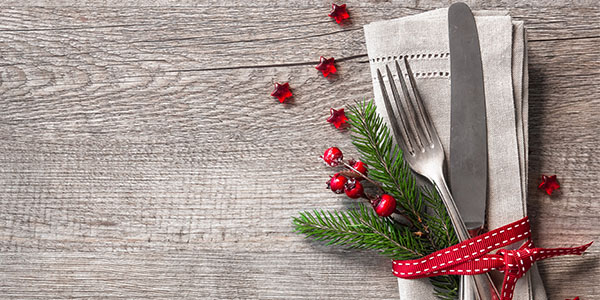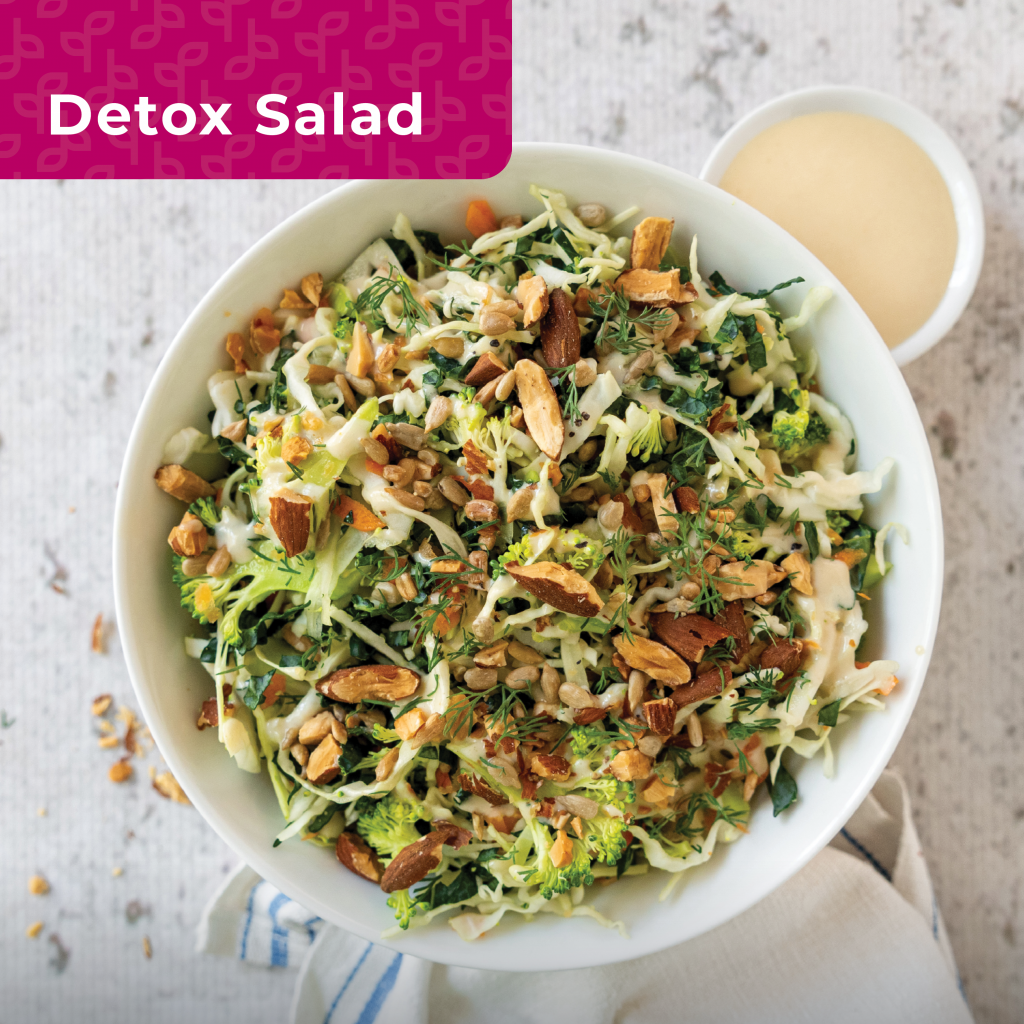 The holidays seem to roll around faster every year, and most people still end up frazzled by obligations and preparations. In many cases, this leads to neglecting to focus on health, which can have lasting negative effects—especially on the waistline. From overeating at parties to stress-eating cookies while wrapping presents late into the night, it is important to stay on track with healthy habits. Here are some tips to help avoid weight gain, dull skin and elevated blood sugar levels that can result from overeating—while still enjoying a happy, healthy holiday season.
The holidays seem to roll around faster every year, and most people still end up frazzled by obligations and preparations. In many cases, this leads to neglecting to focus on health, which can have lasting negative effects—especially on the waistline. From overeating at parties to stress-eating cookies while wrapping presents late into the night, it is important to stay on track with healthy habits. Here are some tips to help avoid weight gain, dull skin and elevated blood sugar levels that can result from overeating—while still enjoying a happy, healthy holiday season.
- Start each meal with a soup or salad. Holiday foods tend to be richer and heavier than normal meals, which can lead to excessive caloric intake. By starting with a broth-based soup (not cream) or a salad (minus heavy dressing), it is easier to eat a smaller portion of a heartier food without going hungry. Minestrone, vegetable soups, and chicken noodle are healthy options.
- Stay hydrated. While dashing to and from events, it can be easy to forget to drink enough water. However, according to WebMD, drinking water helps maintain the balance of fluids in the body, responsible for many different vital functions. From digestion to transportation and absorption of nutrients, drinking water can also help control calories. Foods with a high water content, such as fruits and vegetables, are absorbed more slowly by the body, aiding fullness.
- Don’t go to a party hungry. It can be very hard to resist a plateful of hors d’oeuvres or buffet of buttery desserts if attending a party on an empty stomach. Eating a small, nutritious meal prior to attending an event eases hunger while allowing for a small, reasonable indulgence later.
- Pack snacks to avoid fast food. When running errands with no time to spare for a full meal, temptation to use the drive-through window for some fries can be avoided with a little preparation. Women’s Health recommends grab-and-go fruit like apples and bananas, air-popped popcorn, carrots and hummus, and light string cheese with a few whole grain crackers as healthy snack options.
- Get adequate sleep. While late nights make it hard to stick to a regular sleep schedule, sleep deprivation can cause not only drowsiness the following day, but also lead to overeating. A study by the Mayo Clinic found that men and women who slept less than 5 hours a night were more likely to crave (and end up eating) more high-calorie foods. Sleep duration has a significant impact on the hormones which regulate hunger — ghrelin and leptin — thereby stimulating the appetite. A study from Columbia University and St. Luke’s-Roosevelt Hospital found that sleep-deprived subjects had activated reward centers in their brains after viewing pictures of unhealthy foods– explaining why a piece of cake is downright irresistible after little sleep.
- Drink smarter. Since cutting out alcohol is not realistic for most during the holiday season, limiting intake is crucial for moderating calories. Alternating each drink with a glass of water helps avoid over-indulging. Next, cut out sugary mixers and choose to sip a drink neat (on the rocks) or mixed with soda water. In addition, avoid the common plan to avoid eating all day and “save up calories” for drinking later on. Harvard researchers explain that since most cocktails contain simple carbohydrates, which cause a spike in blood sugar, the “crash” after leads to a ravenous appetite (and high likelihood to over-eat). Therefore, it is wiser to plan to have less to drink and eat food as normal throughout the day.
- Wear fitted clothes. Before sitting down to a big dinner, consider clothing options. An elastic waistband is much more forgiving than a belt and structured pants or jeans. This simple reminder around the middle can help shave off many extra calories during a meal.
- Don’t eat mindlessly. Many times meals are eaten while multi-tasking, which can lead to mindless over-eating. According to research from the Harvard Nutrition Source, removing visual information about how much eaten during a meal increases the amount of food eaten. Taking a dedicated 20 minutes to fully chew, swallow, and enjoy a meal can be a meaningful, restorative break in the day, while avoiding excess intake.
- Indulge a little. Deprivation of favorite holiday-only treats can lead to an unplanned binge, especially when stress levels are elevated. Treat yourself a bit during the festive season, always following the rule of moderation.
- Don’t be afraid to pout. Many women enjoy wearing a bright red lipstick around the holidays, and applying a vibrant shade can not only perk mood, but also help avoid over-indulging. After dinner, re-applying a perfect pout can help resist the urge to have second helpings or another glass of wine.
Source:The original article was written by Marilyn Gemino.



